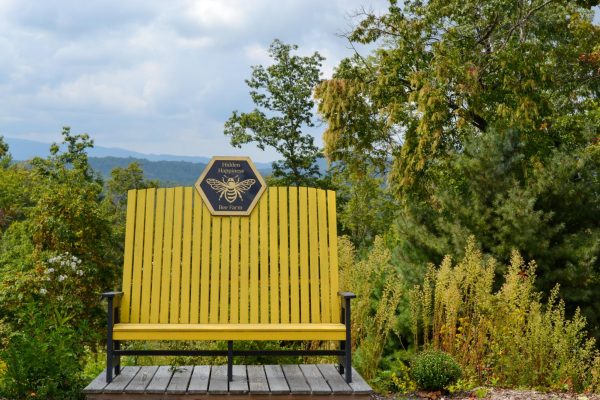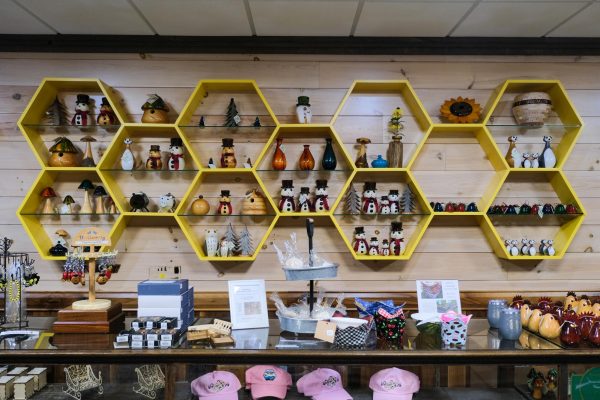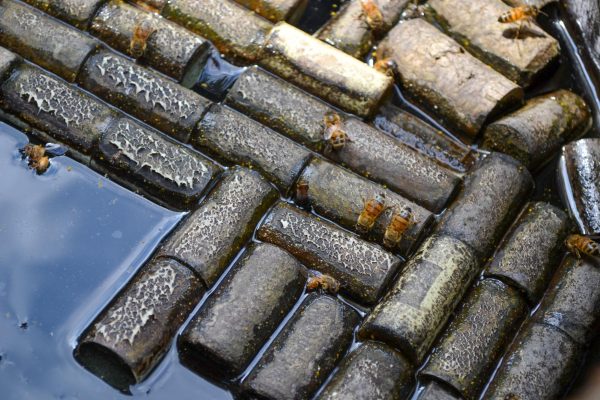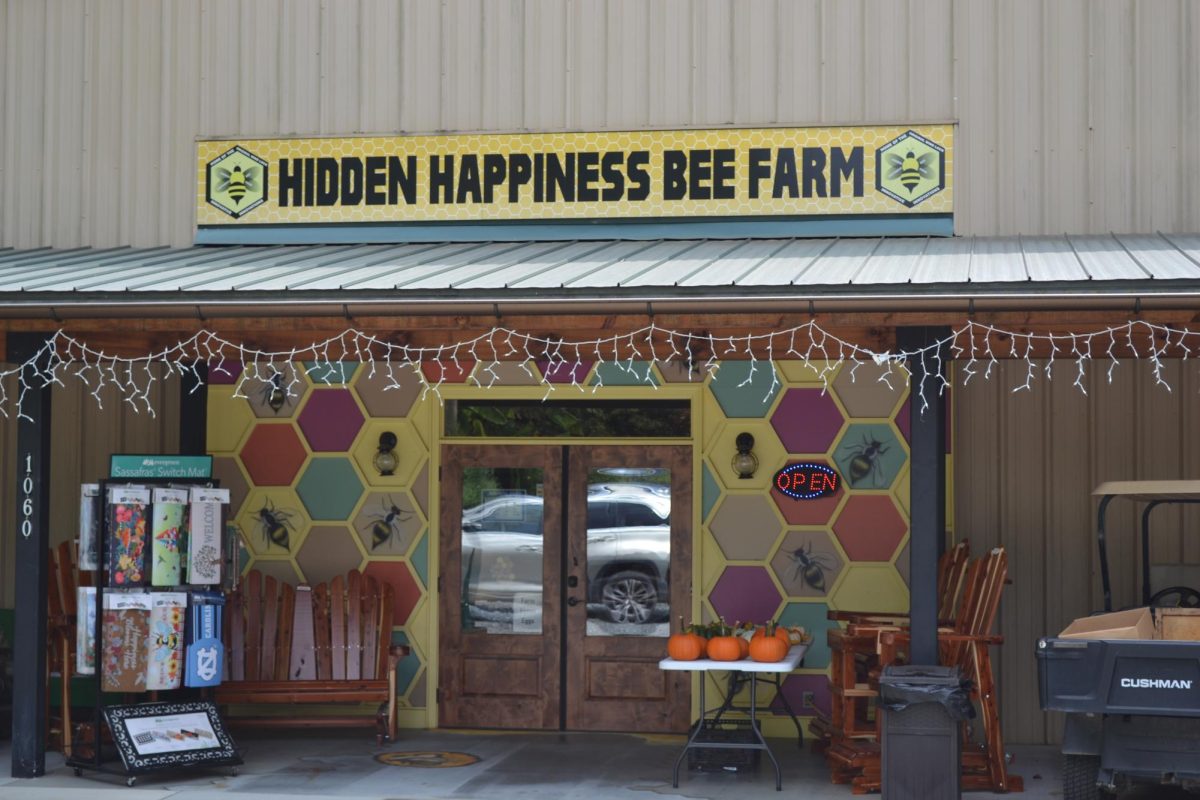The sixth annual High Country Bee Fest takes place Oct. 11 at Hidden Happiness Bee Farm from 9 a.m. to 4 p.m. Local vendors, live music, hayrides, food and honey will be offered in celebration of these winged insects.
H.S. Greene, the owner and beekeeper of the farm, said the festival exists to educate the public on bees and serve the local community.
“The community needs support itself, and I help support a lot of local artisans,” Greene said. “If they have no avenue to get rid of their products or sell their products, this is the way to help them. We need to make the community strong.”

Greene said the festival hosts about 40 local vendors. Each one provides a creative product like jewelry, soap, pottery or plants to sell to the estimated 1,200 attendees the owner is expecting.
The event will feature an educational booth run by the High Country Bee Keepers, a club of which Greene is a member. They meet at the Hidden Happiness Bee Farm once a month to learn how to take care of bees.
“My ultimate goal is to educate the public on the importance of a honeybee, and then let the community know, and the surrounding counties, that they can get their supplies here and be educated to be a successful beekeeper,” Greene said.
The beekeeper said he was inspired to create the festival after one of the two local stores for bee supplies went bankrupt.
“If you can drive within 30 minutes to get bee supplies, be able to take a class and learn how to manage the bees, you’re pretty fortunate,” Greene said.
Rahman Tashakkori, a computer science professor, is the director of an interdisciplinary project focused on bees called AppMAIS, which stands for Appalachian Multipurpose Apiary Informatics Systems.
“The AppMAIS project was born four years ago through a grant from the General Assembly,” Tashakkori said. “The idea was that we collect data from hives, which includes humidity, temperature, audio from inside the hive, video at the entrance of the hive, the weight of the hive and also genetic samples from the hives.”

Tashakkori said the group observes this data through computerized bee hives, which consist of a computer attached to a hive equipped with a camera pointing to the entrance. This type of research is crucial to understanding the pollinators that human society relies on, especially through natural disasters like Hurricane Helene.
“In North Carolina, we have about 140,000 hives; last year, we lost about 60% of them,” Tashakkori said. “That affects one-third of food, and I think a lot of people don’t know any of this. In reality, they don’t know how crucial bees are.”
Jennifer Geib, an associate professor and assistant chair for student affairs in the biology department, conducts research on pollinators.
Geib said as climate change occurs and habitats start to become inhospitable, plants can deal with the changing environment through the seeds they produce. Bees help create the seeds through pollination and, in turn, create new populations in different environments, which is one reason why they are such crucial creatures.
“The number one killer of honeybees are varroa mites and then, of course, the pesticides,” Tashakkori said.
Tashakkori said the lack of resources and varying humidity can cause problems for the pollinators as well.
Geib said bumblebees are also important pollinators in the community, but they are often overlooked in comparison to honeybees.

“Bumblebees, in general, for the ecosystem, are kind of the most efficient, most effective partner for a lot of different plant species in most communities,” Geib said. “So you really need the whole community for everybody to get what they need.”
Tashakkori said researchers are trying to find ways to aid bees, although most options are not sustainable.
“If we don’t have them, in general, we’re doomed. That’s why a lot of people now are looking at some robotic options, which is not as efficient, but something,” Tashakkori said.
Tashakkori said limiting pesticide use, mowing the lawn every other week and leaving weeds alone are simple changes that can have an immensely positive impact on the bee population.
“We need young people to get involved because without you guys, nothing will change,” Tashakkori said.
Correction: A previous version of this article misinterpreted a bee’s role in the pollination process. This has since been changed.



